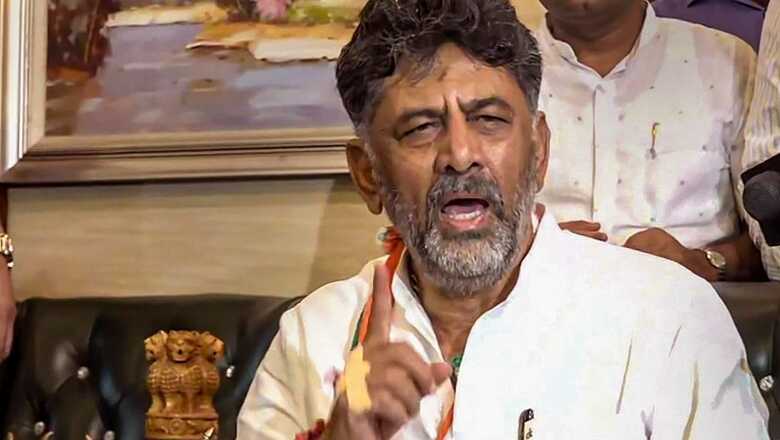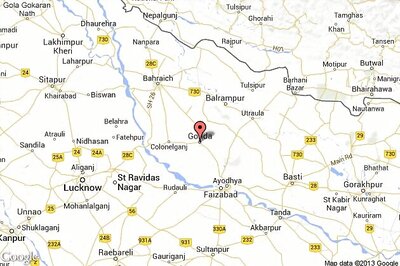
views
Karnataka’s Deputy Chief Minister, DK Shivakumar, candidly admitted in a recent discussion with party legislators that the Congress government would not be able to carry out development activities in the state this year. This confession strikingly illuminates the underlying issue of overreliance on freebies. Given that resources are inherently finite, the practice of dispensing freebies may only sometimes reflect the best use of the fiscal capacity. This approach ultimately creates an imbalance, stifling growth and impeding the optimal allocation of resources.
Despite their appeal to the voting masses, freebies significantly threaten states’ fiscal health. Wrapped in the guise of welfare, these giveaways often consume a disproportionate share of a state’s budget, limiting its capacity to invest in critical areas such as infrastructure, education, and healthcare. Moreover, these freebies can distort economic incentives, foster a culture of dependency, and undermine the spirit of self-reliance among citizens. The allure of short-term political gains frequently overshadows the long-term economic ramifications, leading to ballooning deficits, reduced investor confidence, and potentially, a debt trap that future generations will inherit. For genuine, sustainable progress, states must resist the temptation of these seemingly benevolent gestures and focus on strategic, growth-oriented fiscal policies.
When governments prioritise short-term appeasement over infrastructural and socio-economic advancement, it leads to financial constraints that hamstring their ability to deliver on essential projects. If a significant portion of the state’s budget is earmarked for these guarantees without a clear plan to stimulate economic growth and enhance revenue streams, the state risks creating a culture of dependency. It is also telling that the MLAs are voicing concerns about delayed developmental works, showcasing that even within the party’s ranks, there’s a growing unease with the status quo.
To truly grasp the gravity of this issue, consider the situation in Karnataka before its recent elections. The state boasted a revenue surplus. Yet, even with this financial advantage, Karnataka found itself struggling to allocate funds for developmental projects due to a significant portion of its expenditure being redirected towards freebies. This should sound alarm bells for us. If a fiscally stable state can face such challenges, imagine the dire consequences for states that are already in precarious fiscal health and yet continue to promise freebies. We ought to be deeply concerned and even outraged by such fiscal irresponsibility.
Consider the situation in Punjab as a prime example of this troubling trend. In a recent working paper from the Economic Advisory Council to the Prime Minister, authored by Shamika Ravi and Mudit Kapoor, a time trend analysis of state budgets from 1990-2020 was conducted. The findings were startling. Punjab and West Bengal — two states that are already trailing the national average in real per-capita growth, have invested the bare minimum in capital outlay for development. This may be a direct result of significant capital disbursement towards the payment of internal debts, leaving virtually no space for the funding of development, which could explain the slowed growth of these states. Despite these daunting economic indicators, the Punjab government has introduced an array of freebies. There’s an alarming disconnection between the state’s fiscal reality and the election promises made by political parties to attract votes. This approach, far removed from any concept of a developmental model, is akin to a ticking time bomb for the states.
According to the RBI’s State of State Finances report, released in January 2023, states like Andhra Pradesh, Bihar, Rajasthan and Punjab exceeded both debt and fiscal deficit targets for 2020-21 set by the 15th Finance Commission (FC-XV). Kerala, Jharkhand and West Bengal exceeded the debt target, while Madhya Pradesh overshot the fiscal deficit target. Haryana and Uttar Pradesh were exceptions as they met both criteria. The report also projected that Rajasthan, Kerala and West Bengal would surpass the FC-XV targets for debt and fiscal deficit. The report also had a section on subsidies and freebies. It rightly pointed out that subsidies and freebies crowd out resources for other useful purposes. Further, the RBI also flagged that “the freebies have exceeded 2 percent of GSDP for some of the highly indebted states such as Andhra Pradesh and Punjab”.
One of the prevalent misconceptions in political discourse is the notion that the median voter, especially if they are recipients of government freebies or incentives, is oblivious to the broader failures of governance in terms of overall development. This perspective does a disservice to the voters, presuming them to be solely driven by short-term benefits rather than long-term vision and aspirations.
Development is multifaceted, encompassing education, infrastructure, healthcare, and a robust economy. Mere handouts cannot replace the vast potential that comprehensive development offers. Moreover, the very character of contemporary India is aspirational. The youth, forming a significant portion of the population, looks beyond today. They dream of a brighter future for themselves and their children. This ‘Aspirational India’ envisions a nation that offers world-class education, job opportunities, and an environment that allows innovation and entrepreneurship to thrive.
Assuming that these aspiring citizens are content with just immediate gratification is not only inaccurate but also dismissive. To position freebies as an alternative to development is to miss the pulse of the people. True progress is achieved not when a government provides fish to its citizens but when it teaches them to fish and, more importantly, ensures that there’s a conducive environment for fishing.
Drawing from philosopher John Locke’s principles on property rights and the social contract, freebies offered by the government can be viewed critically. Locke emphasised the individual’s natural rights to life, liberty, and property, attained through their labour without waste. While freebies aim to uphold the right to life by addressing essential needs, their unchecked distribution could compromise others’ property rights, potentially causing economic strain or higher taxes. Locke would stress judicious administration to avoid undermining the labour’s value. Given Locke’s belief in the government’s role to safeguard citizens’ rights under a social contract, unsustainable freebies could be seen as a breach of this agreement. Thus, a Lockean viewpoint underscores the need for a balanced and sustainable approach to welfare provisions.
Following the widespread distribution of free goods and services, the Sri Lankan economic collapse stands as a stark reminder of the perils of not ensuring public debt sustainability. Without corresponding revenue generation, commitment to freebies could lead to a reliance on increasing borrowings, endangering fiscal stability.
The debate around freebies isn’t just an economic one, but a moral and philosophical one as well. Sustainable development is the bedrock on which nations build a prosperous future. True leadership requires a balance: attending to immediate needs while ensuring robust, long-term development. Our collective responsibility is to champion sustainable strategies over transient allure, safeguarding our nation’s future.
The author is Additional Private Secretary (Policy & Research), Economic Advisory Council to the Prime Minister. He tweets @adityasinha004. Views expressed in the above piece are personal and solely that of the author. They do not necessarily reflect News18’s views.

















Comments
0 comment